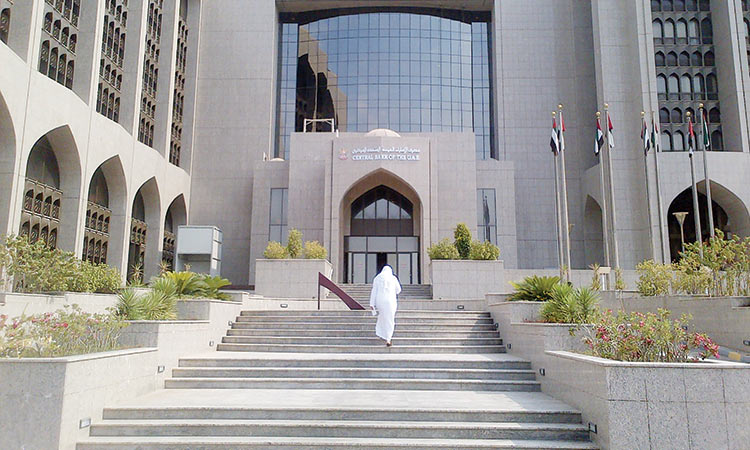
The Central Bank of the UAE (CBUAE) has predicted a strong return to growth in Gross Domestic Product (GDP) for the UAE in 2021, noting the government continues to diversify the economy, provide strong infrastructure spending and encourage private investment both as a measure of growth and private employment.
“The UAE as a country is blessed with strong natural resources, as well as a government both willing and able to stimulate economic activity and a population comprised of both citizens and expatriates with strong determination and will to face challenges,” Abdulhamid M. Saeed Alahmadi, CBUAE Governor, said in a message where he recapped 2020 and spoke about the way ahead.
“In 2020, we have seen various geo-political issues being resolved and new trade and investment opportunities emerge, which were previously not available,” he added, inviting the business and banking community to take part in this new era to kick start the investment cycle, to expand credit appetites, help customers in need and forge a roadmap which is different from before.
“Banks and other financial institutions need to go back to the drawing board and redefine their strategies in a new world with redefined geo-political lines; a global economy that is rapidly digitalising, new trade maps and consumers that demand the best services,” he asserted.
“The Government of the UAE and the CBUAE are ready to provide assistance in all matters and we shall persist in watching business activity to ensure we continue to provide impetus to both existing and new businesses. Let us come together to redefine how we do business, and continue the successful journey of our country forward,” Alahmadi said, thanking the financial and business community for their resilience through 2020 and wishing them the very best for 2021.
Following is the full statement of the CBUAE Governor, Abdulhamid M. Saeed Alahmadi.
“As I sit to write down a review of the year 2020 from my very own perspective, there are many thoughts that cross my mind. The year 2020 has been challenging, to say the least, for businesses, the government and our wider community. Whilst doomsday predictions abounded in 2020, we are still here, continuing to do business and looking optimistically ahead towards various opportunities that have come to light as a result of a new world order. The scale of the pandemic and its impact has been widely discussed and is not the subject of my note today; but more so, an assessment of the change and what will come next. I will also not indulge my readers by a plethora of statistics but will share a few key insights as I review the status of the economy and the way ahead.
The disruptions and the consequent impact of the COVID-19 crisis has been studied across the globe as the pandemic still evolves with new cases and emergent red zones. Whilst the virus still rages on in different parts of the world, the rapid pace of vaccination is a great comfort, and the UAE is well on target to inoculate more than 50% of its population by March 2021. Although the final figures have yet to be confirmed, global Gross Domestic Product (GDP), as well as the UAE’s GDP, are likely to be very subdued for 2020 with a contraction in the range of 3.5% and 6% approximately. The good news is that most predictions for 2021 are optimistic and signal a return to growth throughout the year.
The early signs of this were seen in the late 2nd half of 2020 and the pace of normalisation continues as global trade picks up and protection barriers created on movement slowly disappear. China’s positive performance and a coordinated effort by governments across the globe has meant that the right elements for normalisation are out there and beginning to help.
Whilst the UAE may have contracted in 2020, the financial figures presented by banks and other financial institutions for year-end 31 Dec 2020 are encouraging and show the resilience that the banking system has built over time. The banking system’s gross assets, deposits and lending have all increased, albeit slightly. The more than adequate levels of capital (18.2%, tier 1 of 17.1%) and eligible liquid asset ratio (18.4%) in the system, alongside sufficient levels of provisioning, means that banks and financial institutions in the UAE have displayed robustness in the face of the pandemic’s onslaught. Whilst profit may be down for some banks, they are the resultory impact of a bad year, rather than a fundamental shift in solvency and the appetite to do business.
The intervention of the Central Bank of the UAE (CBUAE), through the Targeted Economic Support Scheme (TESS) and various regulatory relaxations, was timely and meant that the required level of support was provided and helped banks through clearly very testing times. The Government of the UAE implemented various successful measures to facilitate ease of doing business and applied various relaxations on fees and costs to ensure the continued momentum of business activity. The utilisation of the TESS programme, which has now come down to about 50% from its peak, is a strong indicator that banks are now gradually coming back to manage their credit books and navigate the way forward. Banks have asked for and the CBUAE has approved in excess of 15 billion dirhams in dividends, based on their compliance with supervisory requirements. Governments and individual shareholders will use this liquidity to stimulate both the investment and spending cycle in the country.












